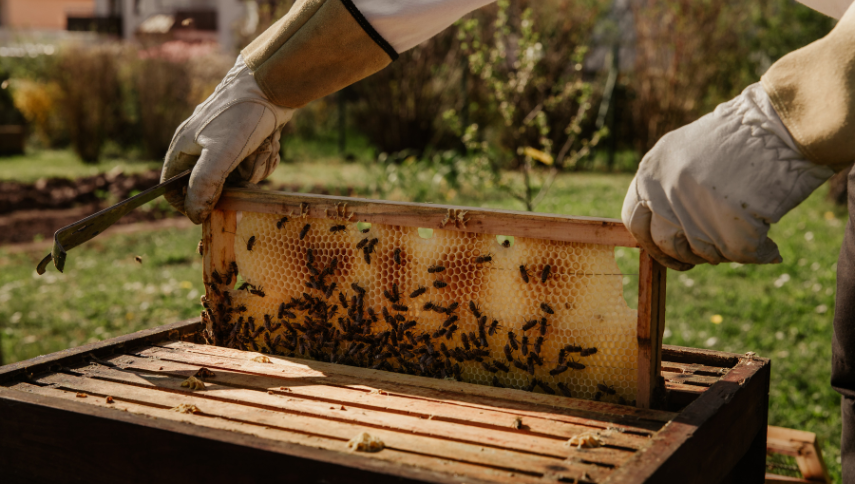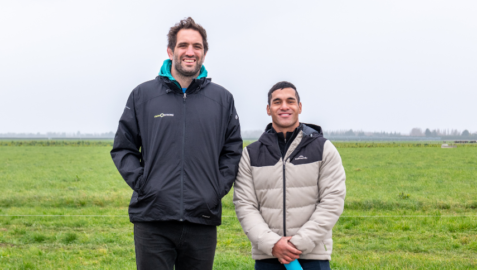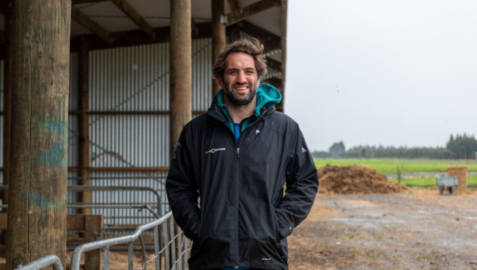
Webinar for beekeepers creates buzz
Module Overview
A webinar hosted by Farmstrong Ambassador Sam Whitelock for members of Apiculture NZ created quite the buzz.
Feedback from members who attended was overwhelmingly positive, says Apiculture NZ chief executive Karin Kos, who also attended and gave a short introduction.
“The feedback was really great from our members who attended, and we’ve also put the webinar on our website and other communication channels for the wider industry to watch,” she says.
The hour-long webinar was held in July and features Sam talking about how he deals with pressure and stress and the practical tools he uses to look after his wellbeing.
He also answered questions from Apiculture NZ members, who face similar challenges to farmers and growers such as adverse weather, isolation, a gruelling workload and financial pressures.
Big challenges in industry
Karin says the apiculture industry has faced some big challenges in the last couple of years and it’s important that wellbeing takes a front seat.
“The industry had a really strong growth projection, but in the last couple of years that growth has tailed off and we have a supply/demand imbalance.”
She says the COVID-19 pandemic created a huge demand for honey both here and overseas due to its health benefits. However, demand has dropped now that the worst of the pandemic is over with countries still getting through the stocks bought during COVID-19 times.
In addition, costs (such as diesel and pest treatments) have increased dramatically, however the price of honey has stayed the same.
“It’s created a tough environment and had an impact on an industry that has been buoyant up until recently,” Karin says.
“Beekeepers are sometimes referred to as landless farmers and, like farming, it’s a solitary role so they don’t always have access to support.”
She says some people in the industry have good support networks, but not all do.
“It’s also quite a competitive industry so that can add pressure.”
The bad weather and Cyclone Gabrielle has been really challenging for the industry, resulting in a short flowering season.
“That can have a huge impact on production and supply. Apart from a bumper crop of clover down south, everybody else had a tough 2022/2023 season.”
Strong partnership invaluable
Karin says Apiculture NZ, which was established in 2016, reached out to Farmstrong after seeing the great work it was doing to help farmers and growers look after their wellbeing.
“Farmstrong are great to work with and our members are dealing with similar challenges to farmers and growers so it’s a great partnership,” Karin says.
“In the webinar, Sam offered such great practical tips. He’s very grounded and knows how to relate to the audience and speak in the language of the audience, which was fantastic. He also uses great sporting analogies and applies them to farming and business.”
Bee population healthy
Karin says that on the plus side, New Zealand’s bee population is in relatively good shape.
“Overall, our bee health is good, but it is very dependent on our strong biosecurity measures and our ongoing ability to manage existing pests and diseases like Varroa and AFB.”
But a more cost-effective effort is needed to combat Varroa mites, which attack and feed on honeybees, she says.
And with New Zealand’s borders back open, more tourists will mean more people buying honey in person from the farmgate and farmers’ markets, giving the industry a much-needed boost.
“Demand is still very strong for honey, particularly Manuka honey, which is great news for the industry. It’s been a tough couple of years, but it’s still a strong market and we are optimistic for its long-term future.”
To watch Sam’s webinar for Apiculture NZ members, click here.


